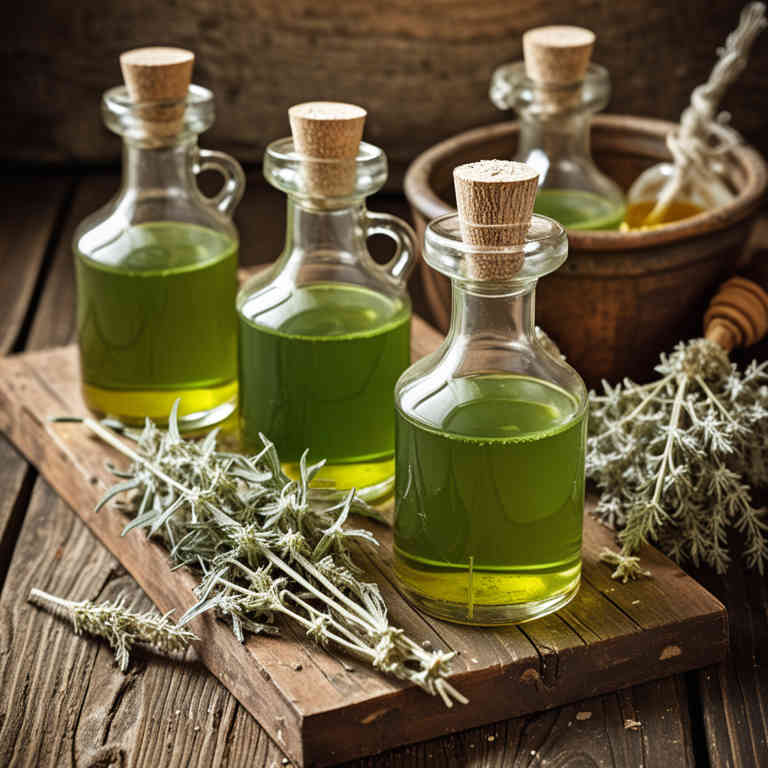Artemisia absinthium syrup for medicinal use

Artemisia absinthium syrup is a herbal preparation made from the distilled essence of the wormwood plant, commonly used in traditional herbal medicine.
It is typically prepared by extracting the bitter compounds from the plant's leaves and flowers, often through maceration or distillation. This syrup has been historically used to support digestive health and as a natural remedy for ailments such as indigestion and liver function. In herbalism, it is also valued for its potential antimicrobial and anti-inflammatory properties.
However, due to its high concentration of thujone, it should be used with caution and under the guidance of a qualified herbalist.
Uses
Artemisia absinthium syrup has been used to treat digestive issues, fever, and parasitic infections for centuries.
Historically, it was valued in ancient Egypt and Greece for its medicinal properties and was used to aid in digestion and reduce inflammation. In traditional medicine, it was also employed to combat malaria and as a vermifuge to expel intestinal worms. Modern applications include its use as a natural remedy for digestive disorders and as a component in some herbal formulations for its antispasmodic effects.
However, due to its potential toxicity, it is now used more cautiously and under professional supervision.
Benefits
Artemisia absinthium syrup has health benefits such as aiding in digestion, reducing inflammation, and supporting liver function.
It is traditionally used to alleviate symptoms of digestive disorders like indigestion and bloating. The syrup may also help in detoxifying the body and boosting the immune system. Its antimicrobial properties can contribute to fighting infections.
However, it should be used with caution and under professional guidance due to its potent nature.
Constituents
Artemisia absinthium syrup active constituents include compounds such as thujone, flavonoids, and essential oils, which contribute to its medicinal properties.
Thujone is known for its potential antiseptic and antiparasitic effects, while flavonoids may support antioxidant activity. The essential oils in the syrup can help in reducing inflammation and may aid in respiratory health. These constituents work together to provide relief from digestive issues and may support the immune system.
However, it is important to use this preparation under professional guidance due to its potency and potential side effects.
Preparation
To make Artemisia absinthium syrup, start by harvesting fresh or dried Artemisia absinthium leaves and flowers.
Rinse the plant material gently and place it in a pot with enough water to cover it by about an inch. Bring the mixture to a boil, then reduce the heat and let it simmer for 30 minutes to extract the medicinal compounds. Strain the liquid through a fine mesh or cheesecloth to remove plant matter.
Finally, mix the strained liquid with an equal amount of honey or sugar syrup to create a thick, aromatic syrup that can be used as a tonic or digestive aid.
Side Effects
Artemisia absinthium syrup may lead to liver damage due to the presence of thujone, a toxic compound found in the plant.
Prolonged or excessive use can cause gastrointestinal issues such as nausea, vomiting, and stomach pain. It may also interfere with the central nervous system, leading to dizziness, headaches, and in severe cases, seizures. Individuals with pre-existing liver conditions or those taking medications metabolized by the liver should avoid this preparation.
It is important to consult a healthcare professional before using Artemisia absinthium syrup, especially for extended periods or in high doses.